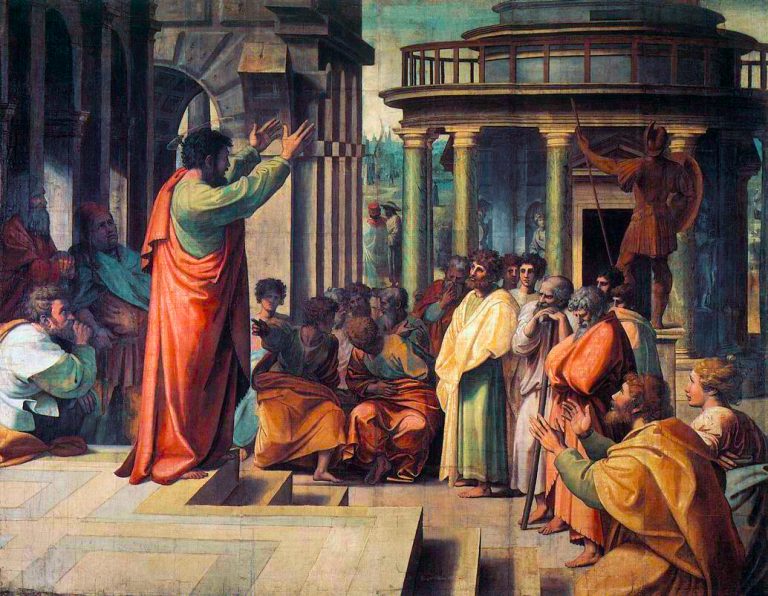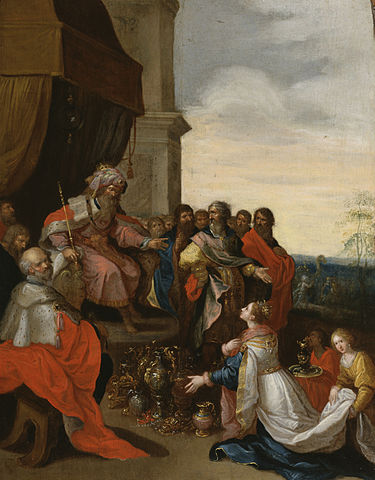The Council of Jerusalem, as recounted in Acts 15, stands as a pivotal moment in early Church history, affirming that salvation is granted through the grace of Jesus Christ, not adherence to Mosaic Law. This decision, guided by the Holy Spirit, underscores the authority of the Catholic Church in matters of doctrine and highlights the importance of obedience to ecclesiastical guidance.
The Dispute Over Mosaic Law
In the early Church, a significant debate arose regarding the necessity of circumcision for Gentile converts. Acts 15:1 states, *”Some who had come down from Judea were instructing the brothers, ‘Unless you are circumcised according to the Mosaic practice, you cannot be saved.'”* (This reflects the early Church’s struggle with integrating Gentile believers.) Paul and Barnabas, recognizing the gravity of this issue, journeyed to Jerusalem to consult with the apostles and elders. This gathering, known as the Council of Jerusalem, sought to discern the Holy Spirit’s guidance on this matter.
The Council’s Resolution
After much deliberation, the Council, under the inspiration of the Holy Spirit, concluded that Gentile converts were not bound by the entirety of Mosaic Law. Acts 15:28-29 records their decision: *”It is the decision of the Holy Spirit and of us not to place on you any burden beyond these necessities, namely, to abstain from meat sacrificed to idols, from blood, from meats of strangled animals, and from unlawful marriage. If you keep free of these, you will be doing what is right. Farewell.”* (This decree emphasizes the Church’s authority to bind and loose in doctrinal matters.)
The Hidden Meaning in “Farewell”
The concluding word, “Farewell,” carries a deeper, symbolic meaning. When dissected, it becomes “Fare well,” implying that to “fare well” in life and faith, one must adhere to the teachings and authority of the Church. Rejecting this authority jeopardizes one’s spiritual well-being.
Psalm 67: A Prayer for Divine Blessing
Psalm 67 echoes the theme of seeking God’s favor: *”May God have pity on us and bless us; may he let his face shine upon us.”* (This verse underscores the desire for God’s guidance and blessing upon His people.) Such blessings are intimately connected to obedience and alignment with God’s will as expressed through the Church.
The Vision of the New Jerusalem
Catholics are helped to see a clearer vision of The New Jerusalem by respecting The Church-Creating Decree of Jesus to His First Catholic Pope: “And I say unto you thou art Peter and on this rock I build My Church and the gates of hell shall not prevail against it. I give you the keys to the Kingdom of Heaven.”
We connect That Word of Jesus with This Word directly from Him in John 14:23: “Whoever loves me will keep My word, says The Lord, and My Father will love hm and we will come to him.” Catholics do NOT ignore those two reasons to be Catholic which let us see:
In Revelation 21:10-14, 22-23, St. John describes a vision of the Holy City: “He took me in spirit to a great, high mountain and showed me the holy city Jerusalem coming down out of heaven from God.” (This vision symbolizes the ultimate communion between God and His faithful.) The city’s perfect cubical dimensions, 1,500 miles (2414 km) on a side, reflect the completeness and perfection of God’s plan for salvation.
Conclusion: Embracing Church Authority
The decisions made at the Council of Jerusalem highlight the importance of Church authority in guiding the faithful. By adhering to the teachings of the Church, believers ensure they “fare well” in their spiritual journey. Let us, therefore, remain steadfast in our obedience, seeking God’s blessings and aiming for eternal communion with Him in the New Jerusalem.








